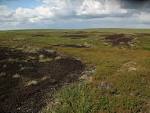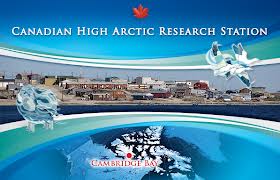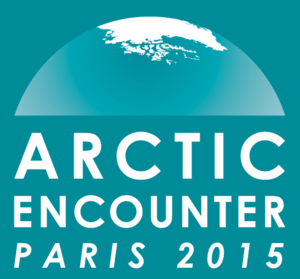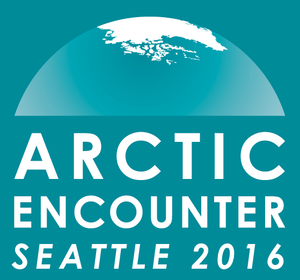|
|
|
|
|
|
|
|
Today's Congressional Action:
The House of Representatives and Senate are in session and expected to consider non-Arctic legislation.
|
8 Arctic countries to sign historic coast guard deal. All eight Arctic nations - including Canada and Russia - are to sign a historic deal this week for their coast guards to work together in the treacherous and increasingly accessible waters of the North. Creating the Arctic Coast Guard Forum is considered a significant step forward for international co-operation in the region and will flesh out previous search and rescue agreements. CBC News
Study: Winter Speed Limits in Finland Reduce Accidents. A new study from the VTT Technical Research Centre of Finland shows that Finland's policy of enforcing lower speed limits during the dark winter months reduces the number of traffic accidents. Statistics indicate that some 36 accidents leading to personal injuries are avoided each year, as are eight deaths. Most countries do not change their speed limits for the colder months. In Finland, however, the combination of snow, ice and very dark conditions forces a lower speed limit during the winter. As of Friday, motorway speed limits will drop to 100 kilometers (62 miles) per hour, while other major roads will see an 80 kilometer-per-hour (49 mile-per-hour) limit enforced. Both are 20 kilometer-per-hour (12 mile-per-hour) decreases from to summer limits. Alaska Dispatch News
 Arctic Study: Alternative Energy a Tough Sell North of the Treeline. Burn, burn burn: despite years of talk, it's likely that long into the future, Canadian Arctic peoples living north of the treeline will continue to burn expensive fossil fuels to heat and power their homes. That emerges from a big technical study released last month by a team of five researchers from Carleton University's School of Public Policy and Administration. They presented the 208-page summary of their work last month to Polar Knowledge Canada, the federal body formerly called the Canadian Polar Commission, which is now in charge of the Canadian High Arctic Research Station under construction in Cambridge Bay - because alternative energy is a research priority for CHARS and Polar Knowledge Canada. Nunatsiaq Online Arctic Study: Alternative Energy a Tough Sell North of the Treeline. Burn, burn burn: despite years of talk, it's likely that long into the future, Canadian Arctic peoples living north of the treeline will continue to burn expensive fossil fuels to heat and power their homes. That emerges from a big technical study released last month by a team of five researchers from Carleton University's School of Public Policy and Administration. They presented the 208-page summary of their work last month to Polar Knowledge Canada, the federal body formerly called the Canadian Polar Commission, which is now in charge of the Canadian High Arctic Research Station under construction in Cambridge Bay - because alternative energy is a research priority for CHARS and Polar Knowledge Canada. Nunatsiaq Online
[Politics] NOAA won't give GOP internal docs on climate research. The federal government's chief climate research agency is refusing to give House Republicans the detailed information they want on a controversial study on climate change. Citing confidentiality concerns and the integrity of the scientific process, the National Oceanic and Atmospheric Administration (NOAA) said it won't give Rep. Lamar Smith (R-Texas) the research documents he subpoenaed. At the center of the controversy is a study that concluded there has not been a 15-year "pause" in global warming. Some NOAA scientists contributed to the report. Skeptics of climate change, including Smith, have cited the pause to insist that increased greenhouse gas emissions, mostly from burning fossil fuels, are not heating up the globe. The Hill
DHS S&T Unveils Arctic Domain Awareness Center in Alaska. The Department of Homeland Security's science and technology directorate has opened a new Arctic Domain Awareness Center in Alaska as part of efforts to boost DHS and U.S. Coast Guard capabilities in the region. DHS said Tuesday ADAC is located at the University of Alaska's campus in Anchorage and will work to support emergency response with a focus on the challenges in the Arctic environment. "Some of our nation's best and brightest minds reside in our university system and we need to tap into those resources of innovation and fresh ideas," said Robert Griffin, deputy undersecretary for science and technology at DHS. Executive Gov
 Science, High-Tech, Guide Nunavut's Canadian High Arctic Research Station. Girder by girder, the Canadian High Arctic Research Station in Cambridge Bay is taking shape - with one foot grounded in science, the other in technology and with its heart, many hope, rooted in traditional knowledge. The CHARS main science building, which, at 50,000 square feet, is set to become the largest building in Canada's North, will feature a traditional knowledge centre at its core. But how the relationship between traditional knowledge and the research station's development-directed mandate will play out remains uncertain. Nunatsiaq Online Science, High-Tech, Guide Nunavut's Canadian High Arctic Research Station. Girder by girder, the Canadian High Arctic Research Station in Cambridge Bay is taking shape - with one foot grounded in science, the other in technology and with its heart, many hope, rooted in traditional knowledge. The CHARS main science building, which, at 50,000 square feet, is set to become the largest building in Canada's North, will feature a traditional knowledge centre at its core. But how the relationship between traditional knowledge and the research station's development-directed mandate will play out remains uncertain. Nunatsiaq Online
|
Legislative Action
No Arctic legislation was formally considered yesterday.
|
|
Future Events
The Polar Oceans and Global Climate Change, November 3-6, 2015 (La Jolla, California USA). The American Polar Society will host this Symposium at Scripps Institution of Oceanography. A flyer with a partial list of presenters is available on the Society's website (americanpolar.org) and from the Society's Membership Chairman by email.
Forum for Arctic Modeling and Observational Synthesis Meeting, November 3-6, 2015 (Cape Cod, MA, USA). On November 3rd, the 2015 School for young scientists will consider "Regional Oceanography of the Arctic marginal seas" with lectures covering major features of atmospheric, sea ice and oceanographic regimes of the: Bering, Chukchi, Beaufort, East-Siberian, Laptev Sea, Kara, Barents and Nordic seas. On November 4-6, the meeting portion will summarize project accomplishments for the last 3 years of activities and will focus on the formulation of scientific questions and directions for FAMOS future research (2016-2019) to: (a) improve Arctic modeling, employing very high resolution models; (b) develop and test new arctic monitoring/observing systems and (c) improve predictions of Arctic environmental parameters with reduced uncertainties.
Due North: Next Generation Arctic Research & Leadership, November 5-8, 2015 (Calgary, Alberta, Canada). The Association of Canadian Universities for Northern Studies (ACUNS) will convene an interdisciplinary conference of early career scientists working on Arctic issues. Topics will include: Arctic Communities, Arctic Sustainable Development, Arctic Wildlife, Ecosystem and Biodiversity, Arctic Food Security, Arctic Landscapes, Climate Change and Adaptation, Disaster Risk Management, Policy, Politics and Leadership, Arctic Environment (Data and Techniques), Arctic Resources, and Future of Arctic.
Matchpoints Seminar, November 12-13, 2015 (Aarhus, Denmark). The purpose of the conference is to provide a forum for policy-makers and academics to deliberate on how the security, resilience and sustainability of the globalized Arctic region and its peoples may be enhanced, and what instruments of governance may most suitably contribute. The conference will spell out (1) how the different relevant dimensions of security (military, economic, environmental, energy and human security) manifest themselves in the governing / governance arrangements in the Arctic; (2) how the challenges associated with each manifest themselves, individually and together; and (3) what forms of governing arrangements can best help to address the challenges. The conference will also focus on (4) how the Nordic countries and nations, including Greenland, the Faroe Islands and Aaland Islands, may contribute to the peace, stability and prosperity of the Arctic region through collaborative efforts based on their shared social, human, environmental and democratic values.
** New this week** Arctic Circle Forum (ACF) Singapore, November 12, 2015 (Singapore). The event will be hosted by The Arctic Circle and Singapore Maritime Institute (SMI), with the support of the Singapore Government. The ACF Singapore will be opened by President of Iceland Ólafur Ragner Grímsson and Deputy Prime Minister and Coordinating Minister for National Security of Singapore Teo Chee Hean. Discussions will focus on a range of topics related to Arctic shipping, infrastructure financing, ocean science and research, as well as global collaboration on Arctic affairs. Among the speakers and participants will be Senior Arctic Officials, representatives of major shipping companies, investment funds, and scientific institutes from the United States, Europe, and a number of Asian states.
Arctic Observing Open Science Meeting, November 17-19, 2015 (Seattle, Washington). The Arctic Observing Open Science Meeting will be 2.5 days and held at the Hyatt at Olive 8 in Seattle, Washington. The conference will bring together individuals and teams involved in the collection, processing, analysis, and use of observations in the Arctic - from academia, agencies, industry, and other organizations. The meeting will be convened as a combination of plenary talks, parallel science sessions, and a poster session. The deadline for the Meeting Registration is Tuesday, 20 October. The agenda and registered attendees can be found on the meeting website.
In the Spirit of the Rovaniemi Process 2015, November 24-26, 2015 (Rovaniemi, Lapland, Finland).When the Arctic Environmental Protection Strategy, the so-called Rovaniemi Process, was adopted in 1991, it aimed at overcoming divisions and turning the zone of Cold War military tensions into a region of peace and co-operation. In this joint effort focusing on the protection of environment, and later, sustainable development, the Arctic states supported by indigenous organizations laid grounds for institutionalized collaboration and the emergence of Arctic regional identity. The second international conference will bring together decision-makers, scholars, artists, designers and students to address these questions and discuss the Arctic in global, regional and local perspectives.
** New this week** Arctic Council and Beyond, December 4, 2015 (Ottawa, Ontario, Canada). This one-day conference hosted by The Northern Institute will focus on the role of the Arctic Council as a forum for Arctic cooperation, the place of the Arctic in Canada's foreign policy and approach to the circumpolar world, the role of the Arctic in global relations in light of the increasing interest in the region by European and Asian states, and the voice of Indigenous Peoples within the Arctic Council and in shaping circumpolar countries' Arctic policies.
Arctic Encounter Paris (AEP 2015), December 11-12, 2015 (Paris, France) (During the UN Convention on Climate Change - COP21). The Arctic Encounter Paris will take place at the French Senate at Luxembourg Palace and the  French Military College, École Militaire, in Paris, France, on the final days of the monumental United Nations Convention on Climate Change (COP21) where thousands of global citizens and government delegates will be gathered to deliberate the world's response to our changing planet in Paris. The AEP is the only Arctic policy side event currently planned to take place during the UN Convention. A reception will take place following the closing panel. French Military College, École Militaire, in Paris, France, on the final days of the monumental United Nations Convention on Climate Change (COP21) where thousands of global citizens and government delegates will be gathered to deliberate the world's response to our changing planet in Paris. The AEP is the only Arctic policy side event currently planned to take place during the UN Convention. A reception will take place following the closing panel.
 Fall meeting of the American Geophysical Union, December 14-18, 2015 (San Francisco, California). The 48th meeting of the union brings together nearly 24,000attendees, and lots of Arctic research results. The scientific program is here. There will be several Arctic-related "Town Hall" meetings, including those sponsored by NASA, DOE, NSF, ISAC, IARPC, and SEARCH. Fall meeting of the American Geophysical Union, December 14-18, 2015 (San Francisco, California). The 48th meeting of the union brings together nearly 24,000attendees, and lots of Arctic research results. The scientific program is here. There will be several Arctic-related "Town Hall" meetings, including those sponsored by NASA, DOE, NSF, ISAC, IARPC, and SEARCH.
This symposium is part of an ongoing initiative of the National Academies of Science Polar Research Board to expand public understanding of why the dramatic changes affecting the Arctic region ultimately matter to us all. The agenda features engaging presentations and discussions with top Arctic science and policy experts, and displays and interactive exhibits that illustrate Arctic change and its global impacts. The event is free and open to the public. There are sponsorship opportunities, and a call for exhibitor applications (by Oct.31, 2015). Audience space is limited, so register today; and please encourage your friends, neighbors, and colleagues to participate-as our goal is to reach well beyond the small circle of specialists who typically attend Arctic-themed events in the DC area. The U.S. Arctic Research Commission is helping to sponsor this event.
 Building upon the preceding Arctic Encounter event in Paris, the third annual Arctic Encounter Symposium (AES) in Seattle, Washington will convene policymakers, industry leaders, and leading experts to confront the leading issues in Arctic policy, innovation, and development. As the largest annual Arctic policy event in the United States, the AES mission is to raise awareness, engage challenges, and develop solutions for the future of a region and a people. The two-day program includes two keynote luncheons, expert plenary sessions, break out sessions, a networking cocktail reception and seated dinner. A closing reception will take place at the conclusion of the program. Building upon the preceding Arctic Encounter event in Paris, the third annual Arctic Encounter Symposium (AES) in Seattle, Washington will convene policymakers, industry leaders, and leading experts to confront the leading issues in Arctic policy, innovation, and development. As the largest annual Arctic policy event in the United States, the AES mission is to raise awareness, engage challenges, and develop solutions for the future of a region and a people. The two-day program includes two keynote luncheons, expert plenary sessions, break out sessions, a networking cocktail reception and seated dinner. A closing reception will take place at the conclusion of the program.
|
|

  
4350 N. Fairfax Drive, Suite 510
Arlington, VA 22203, USA
External links in this publication, and on the USARC's World Wide Web site ( www.arctic.gov) do not constitute endorsement by the US Arctic Research Commission of external Web sites or the information, products or services contained therein. For other than authorized activities, the USARC does not exercise any editorial control over the information you may find at these locations. These links are provided consistent with the stated purpose of this newsletter and the USARC Web site.
|
|
|
|
|
|
|
|
|